D&D OGL 1.1 Controversy – What’s Going On?
Earlier this week, I covered the upcoming live-action Dungeons & Dragons show. In that article, I mentioned we’ve gotten spoiled with new content. But, I hadn’t noticed a new issue that’s now spamming my news dashboard. I’m talking about the D&D OGL 1.1 controversy.
It’s ironic, especially because I mentioned the new D&D version coming in 2024. I say it’s ironic because that announcement sparked the scandal. Sadly, I was too distracted by the show and the new film to realize it.
But, what’s OGL 1.1? Essentially, it’s a change to the original Open Game License. The OGL is responsible for Dungeons & Dragons’ fame. It allows people to use the brand’s universe and properties to create new content.
Now, the new D&D update brings a new version of that license. And, according to many sources, it could endanger content creators. So, the community backlash has been immense.
But, what exactly is going on?
The Open Game License from Wizards of the Coast explained
 It’s time to get technical. Ignore what the guy in the picture is reading. It’s just for illustration. (Image credit: advogadoaguilar)
It’s time to get technical. Ignore what the guy in the picture is reading. It’s just for illustration. (Image credit: advogadoaguilar)
Wikipedia has a great definition of the Open Game License. Summarized, it’s a public copyright license granted by Wizards of the Coast. The goal is to allow tabletop RPG developers to use their content.
In other words, developers can use the company’s settings, rules, and game mechanics. But, they must publish them under the company’s license. That’s why you can find new tabletop RPGs using 5e rules.
The license originally came with D&D 3rd edition. 4th Edition also came with its version of the OGL. But, it was too restrictive, leading to another 4e disappointment. The current OGL is almost identical to 3e. But, it’s now under a new SRD (System Reference Document). The SRD is a ruleset for publishing content under the OGL.
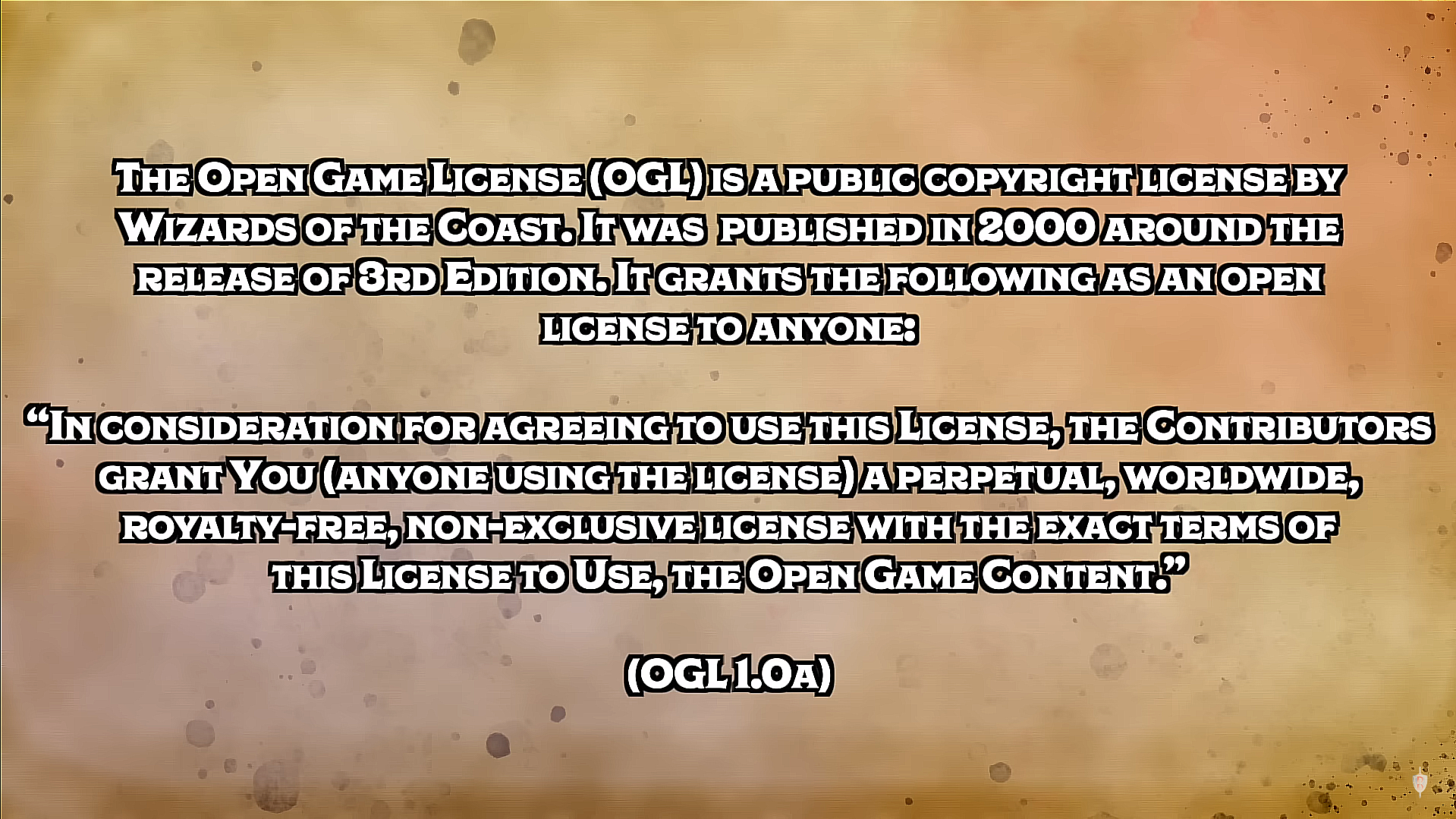 The OGL has been crucial for Wizards of the Coast’s ubiquity. (Image credit: Dungeon Dudes)
The OGL has been crucial for Wizards of the Coast’s ubiquity. (Image credit: Dungeon Dudes)
To make things short, the OGL lets developers use D&D’s systems in their games. And, it’s one of the main reasons why D&D and 5e are almost synonymous with tabletop RPGs. It’s also responsible for major D&D settings, like Eberron.
As such, you can see why it’s a big deal for the community. That’s why the D&D OGL 1.1 controversy is a thing.
The concerns about D&D OGL 1.1 before today’s shattering scandal
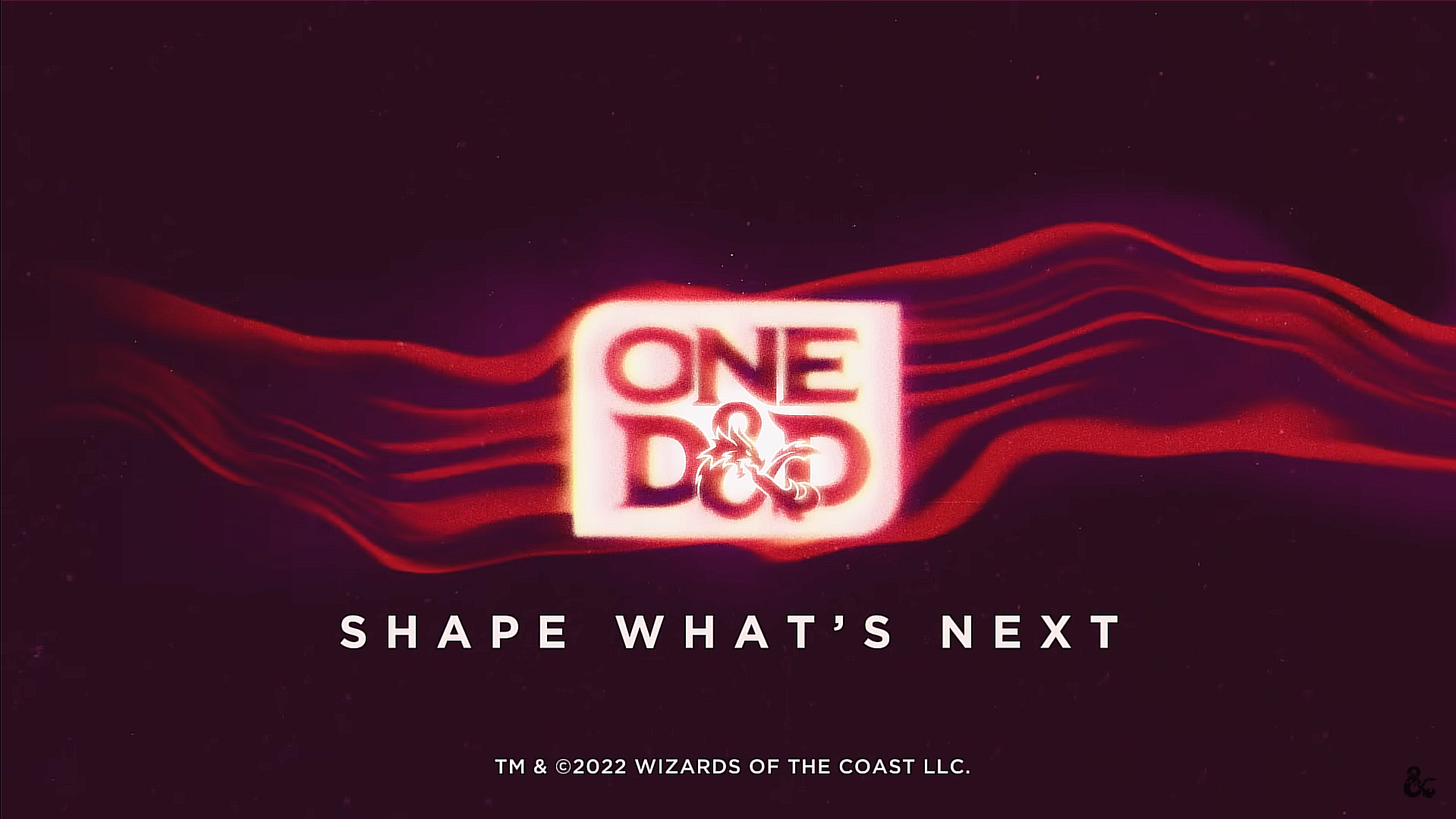 This… This is where it all began. (Image credit: Dungeons & Dragons)
This… This is where it all began. (Image credit: Dungeons & Dragons)
With the announcement of One D&D, the new OGL 1.1 also made the news. At first, players were conflicted about the One D&D update. But, they quickly realized the real menace: the new OGL.
You can watch the announcement video above. Almost as soon as it was released, the comments came flooding. Most of them weren’t too optimistic.
 As you’ll see, today’s backlash echoes many of the comments 4 months ago.
As you’ll see, today’s backlash echoes many of the comments 4 months ago.
In fact, many of the complaints mirror the current community opinion. Many worried about what this change will bring to the market. It’s weird to see how long it took media outlets to cover the issue.
Some comments pointed out the corporate approach by Wizards of the Coast. The new OGL was similar to 4e’s license in its restrictiveness. The main problem comes with larger content creators making a living off their work.
 And, many of today’s statements have been around since the announcement.
And, many of today’s statements have been around since the announcement.
Some comments even predicted the current backlash. From the comment above, you can see the beginnings. People were already hesitant to adopt the new ruleset. Today, we can see a similar approach regarding the D&D OGL 1.1 controversy.
Things got so heated that D&D Beyond released an FAQ.
According to it, the main goal is to restrict NFT minting and similar IP exploitation. It also makes it harder to create tabletop RPGs using their system. They also point out the prevalence of custom agreements protecting content creators.
Commercial content creators might have to report related annual revenue. And, those making over $750,000 yearly will have to pay royalties.
What D&D OGL 1.1 brings to the table now
The video above, by Dungeon Dudes, is a great explanation of the D&D OGL 1.1 controversy. I invite you to invest 12 minutes into it if you’re interested in D&D. Basically, they go through what I already explained about the OGL. They also cover the new version’s impact.
Most importantly, they reference this article by Linda Codega. In it, she explains what’s coming with the new OGL 1.1.
The new document, 10 times larger than the original, addresses new technologies. Off the bat, it touches on blockchain and NFTs. And, it takes a strong stance against “bigoted content.” Summarized, the company is free to terminate contracts with creators publishing discriminatory content.
While that might sound good, we have to think about the nature of tabletop RPGs. They allow players to face both good and bad in the world. Settings like Dark Sun thrived over its dark and gruesome setting. Many players enjoy playing settings with controversial subjects. So, it might hinder many users’ experience.
Sure, it’s fine to protect your customers against ill ideals. But, these types of policies always pose a risk of abuse.
The new OGL also aims to undermine competitors. Furthermore, they state that the original OGL wasn’t intended to allow non-printable material.
The biggest change comes with the division between Non-Commercial and Commercial agreements. It introduces a Tiered Earning system, rules for crowdfunding, and new royalties.
The impact of the new OGL on D&D content creators
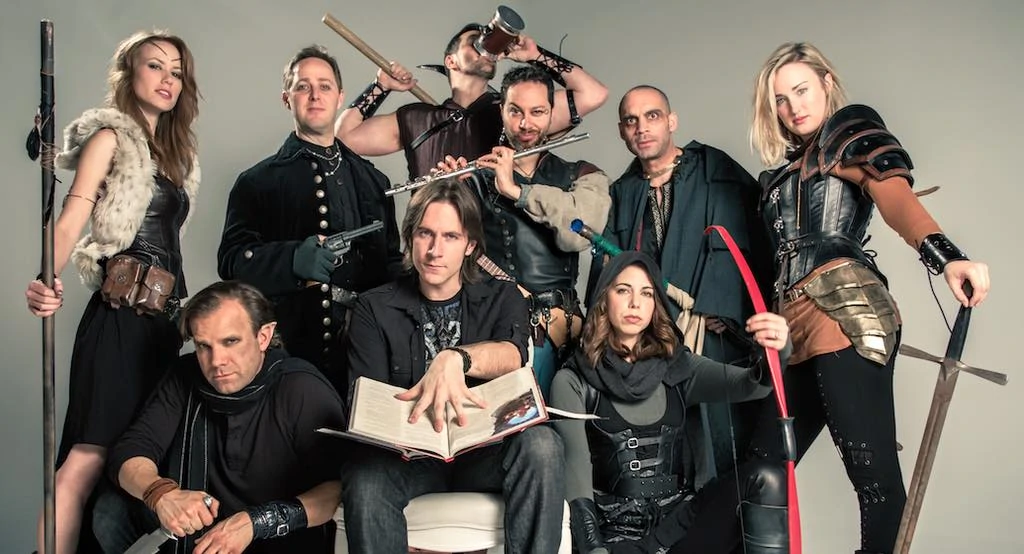 Some speculate that even giants like Critical Role will be hit by the new OGL. (Image credit: Critical Role Wiki | Fandom)
Some speculate that even giants like Critical Role will be hit by the new OGL. (Image credit: Critical Role Wiki | Fandom)
The new OGL only allows the creation of RPGs and printed (or printable) media. It excludes videos, virtual tabletops, video games, novels and similar media, apps, and more.
As such, it might affect content creators who stream homemade campaigns. Theoretically, this means even Critical Role and similar creators might suffer. But, the company’s FAQ states that the new OGL won’t affect these creators.
The FAQ also states that these types of creators must resort to custom agreements. Chances are, the largest creators already signed contracts like these. So, they shouldn’t be affected.
But, it does make things a lot harder for new creators.
On the other hand, TechCrunch reported that creators are worried about their livelihoods. According to the article, the tabletop landscape could fracture. Additionally, the new OGL might transfer fanmade IP ownership to Wizards of the Coast.
Moreover, virtual tabletop software will likely be a major victim. The new OGL doesn’t cover these creators. So, they’ll need custom agreements. That might sound good—until we bring One D&D’s own virtual tabletop. Do you think direct competitors will benefit from custom agreements?
Finally, $750,000 a year doesn’t mean good margins for content creators. It’s entirely possible to make that revenue and take marginal profits. Even in these cases, they must pay royalties to Wizards of the Coast.
At least, fan content like fan art, podcasts, blogs, websites, and streaming aren’t affected.
The community backlash following the new D&D OGL 1.1
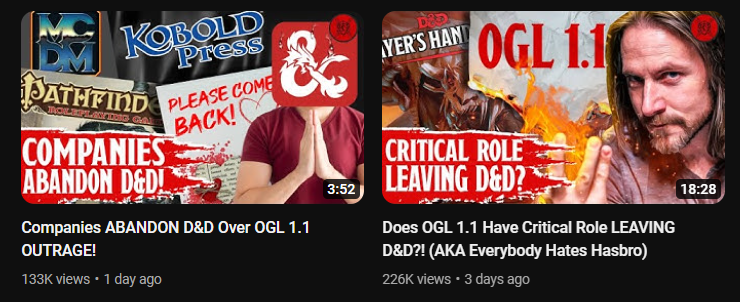 Well, that escalated quickly…
Well, that escalated quickly…
The news and opinions about the D&D OGL 1.1 controversy spread like wildfire. In days, dozens—if not hundreds—of videos and articles flooded the internet. The backlash ranged from disgruntled takes to threats of ditching the franchise.
It’s easy to see why the reaction took this course. After all, most content related to D&D is actually “homebrew” campaigns and settings. Fan-favorite settings, like Eberron, came to light thanks to the OGL.
This article by Inverse summarizes the common opinion. Now, Wizards of the Coast is seen as greedy, prioritizing profits over the community.
Many fans also feared for the future of the franchise after these changes. D&D’s ubiquity owes a lot to the original OGL. With the recent backlash, we might see developers migrate to other systems. Or, they could create their own.
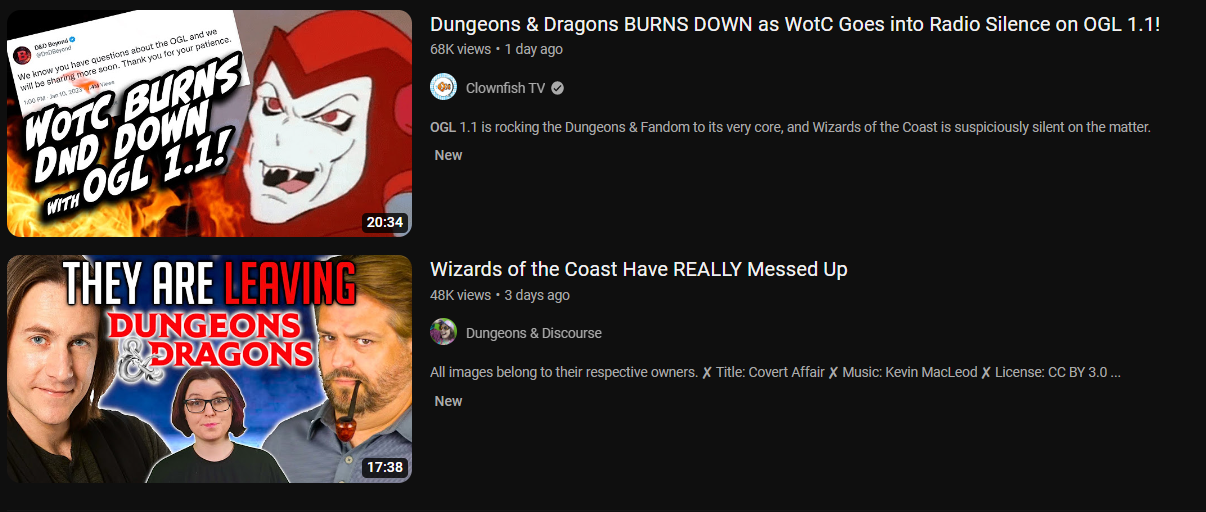 As expected, the community hasn’t been kind to Wizards of the Coast.
As expected, the community hasn’t been kind to Wizards of the Coast.
And, the community pressure might exacerbate the damage. Take Critical Role, for example. Wizards of the Coast wouldn’t dare to risk their relationship. After all, they’ve been fundamental for the brand’s success. But, they could distance themselves from the brand to avoid angering fans.
Even today, you can see fresh releases about the OGL scandal. Just hours before writing this, The Guardian reported fans were abandoning the game. The scandal has brought a new wave of support for independent creators. And, the same amount of support has withdrawn from Wizards of the Coast and Dungeons & Dragons.
Other tabletop RPGs benefiting from the D&D scandal
As you might infer, tabletop RPG content creators aren’t giving up on the industry. There are many D&D competitors around. Naturally, many creators and influencers have directed their attention to them.
One of the first videos to follow this trend came out right at the start of the wave. It quickly shed light on games like Blades in the Dark. The main criterion was having a less-restrictive gaming license.
This development is a huge benefit for D&D’s competitors, like Pathfinder. The game was already quite famous after the release of 4e. Now, it’s enjoying renewed interest. The same has happened for countless other games.
 Smaller tabletop RPGs have gained a lot of attention thanks to this announcement.
Smaller tabletop RPGs have gained a lot of attention thanks to this announcement.
That’s also great news for smaller developers. Like the video above, many content creators shifted their focus toward indie RPGs. This niche market offers a lot of innovation, missing in many mainstream games. Plus, it’s a unique opportunity for smaller games to gather a stronger audience.
I’m one of those interested in seeing which titles come to light. Last year, I expanded my interest into other tabletop RPGs. And, I’m excited to see how the market shifts after the OGL controversy.
Games like Blades in the Dark, Alien, Star Wars, and Pathfinder are just some examples. I’d recommend you take this chance to discover new systems and settings.
Is D&D OGL 1.1 the end of the famous franchise by Wizards of the Coast?
 It might sound like an exaggeration, but some people genuinely believe in this.
It might sound like an exaggeration, but some people genuinely believe in this.
For a moment, let’s go back to the Critical Role example. Critical Role is responsible for a major part of D&D’s popularity today. Their streams and videos attract millions of viewers with each release. And, they mostly focus on D&D-based campaigns and settings. Without them, Wizards of the Coast would miss out on a huge audience.
Now, let’s say fans pressure the team into trying other games to boycott WotC. That would translate into millions of views withdrawing from D&D. To double-up, said views would move to its competitors.
Now, imagine this happening with dozens of huge content creators. Well, you don’t have to imagine. Instead, you can just wait and see.
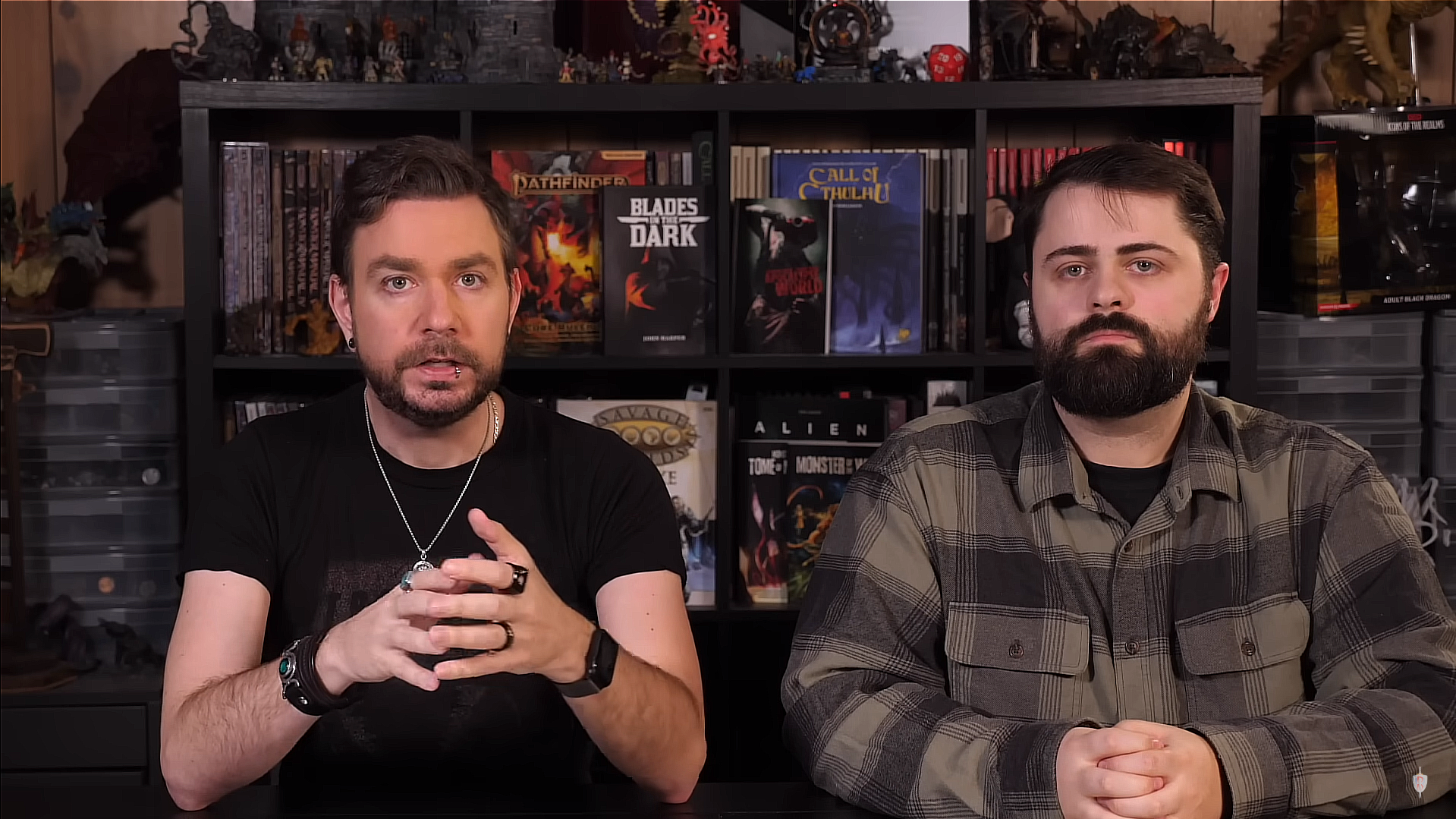 Can you notice the games in the background? Yes, people are leaving Dungeons & Dragons. (Image credit: Dungeon Dudes)
Can you notice the games in the background? Yes, people are leaving Dungeons & Dragons. (Image credit: Dungeon Dudes)
Dungeon Dudes, the makers of the explanation video, amass nearly 400,000 subscribers. In that video, you can notice something interesting. They populated the background with Blades in the Dark, Pathfinder, and Call of Cthulhu. That’s a clear statement that many other creators have followed.
This, plus the current backlash, could cost Wizards of the Coast millions of customers. That’s without accounting for the greater exposure its competitors are enjoying.
These developments lead many fans to believe the franchise might die.
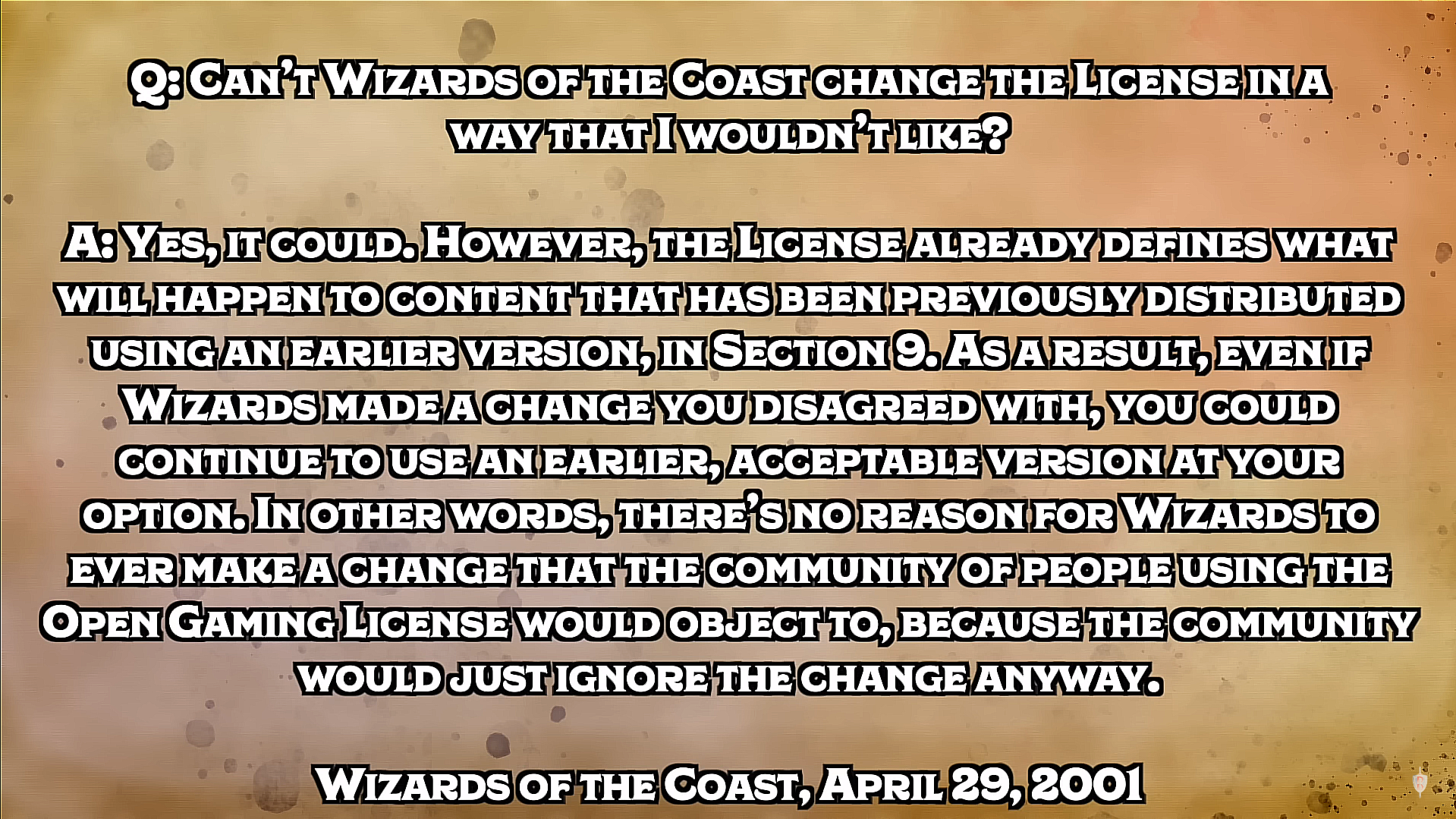 Does this calm you down? D&D OGL 1.1 is nullifying it. (Image credit: Dungeon Dudes)
Does this calm you down? D&D OGL 1.1 is nullifying it. (Image credit: Dungeon Dudes)
Sure, some still stand against these beliefs. Others even defend Wizards of the Coast. The image above has been used to subdue complaints and uncertainty. According to previous updates, creators could choose their preferred OGL.
In theory, that means no one has to pay attention to the D&D OGL 1.1 controversy. So, there’s nothing to worry about, right?
Sadly, that’s not quite true. The OGL 1.1 states that it’ll replace all previous versions. So, it would eliminate this clause. In other words, the new OGL forces creators to use it.
To clarify, I don’t believe D&D is going to disappear—far from it. However, this could be the end of their tabletop RPG monopoly.
And, that’s a wonderful thing.
Are you joining the OGL 1.1 backlash? Here are my 3 favorite tabletop RPGs!
If you’re also angry with the D&D OGL 1.1 controversy, I’ve got you. Honestly, D&D isn’t even in my top 5tabletop RPGs. So, let me introduce you to my 3 favorite tabletop RPGs below!
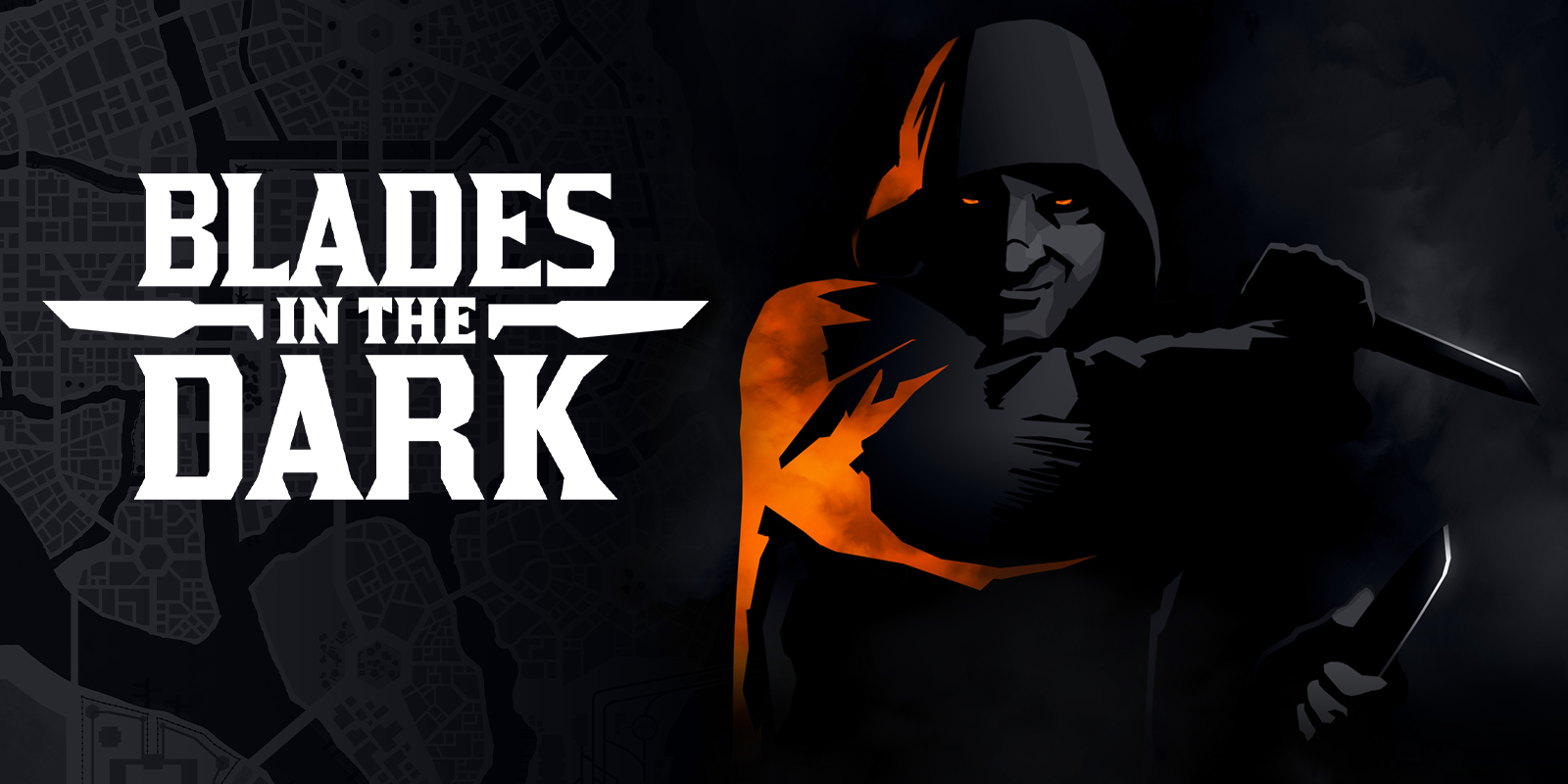 This one’s my favorite setting for any tabletop RPG. (Image credit: John Harper & Evil Hat)
This one’s my favorite setting for any tabletop RPG. (Image credit: John Harper & Evil Hat)
Firstly, I have to talk about a game that blew my mind: Blades in the Dark. You’ve probably heard about it already. It features unique mechanics and a fantastic setting.
It’s set in a Dishonored-like world, with heavy steampunk vibes. Weapons range from blades and swords to old-fashioned pistols and rifles. And, spirits leave dead people to wander the world. You’ll face both living and supernatural threats.
As for the mechanics, the game is fairly simple. You just need 6-sided dice for it. Creating a character is straightforward. And, the game focuses mostly on narration and roleplaying.
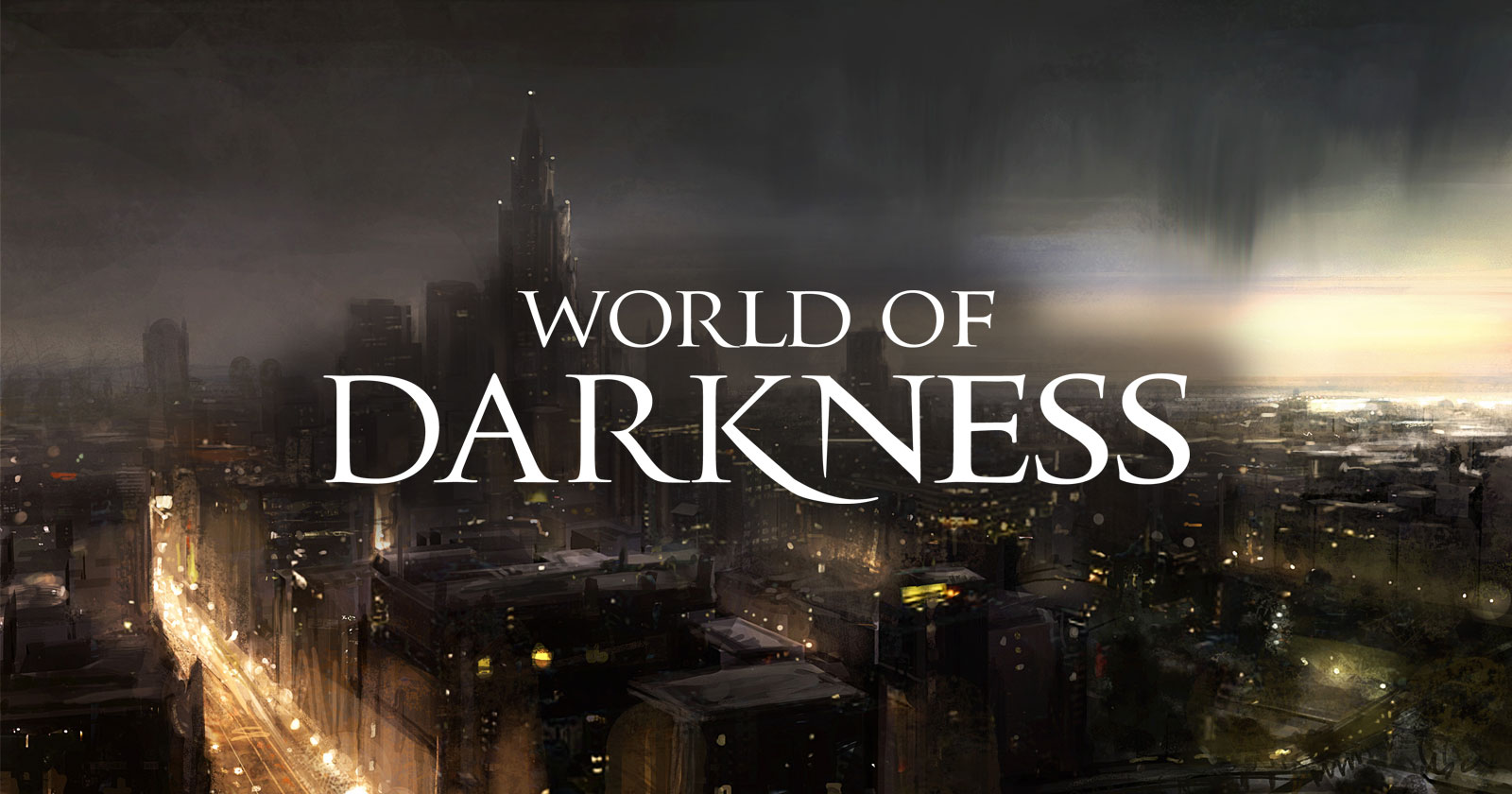 The best game if you want to roleplay in your neighborhood. (Image credit: Paradox Interactive)
The best game if you want to roleplay in your neighborhood. (Image credit: Paradox Interactive)
Funny enough, Vampire: The Masquerade was the first tabletop RPG I ever played. And, it’s still one of my favorites. But, I’ll talk about World of Darkness to cover the entire universe.
World of Darkness offers a universe where werewolves, vampires, and more are real. Moreover, it’s set in the modern world. So, imagine there’s a gang of vampires in that seedy hood in your town. That’s the setting of World of Darkness.
The mechanics are quite different from D&D. But, creating a character isn’t too difficult. Plus, the rich universe and variations make it perfect for trying new things. In the last campaign I played, we were plain humans. And, it was pure horror.
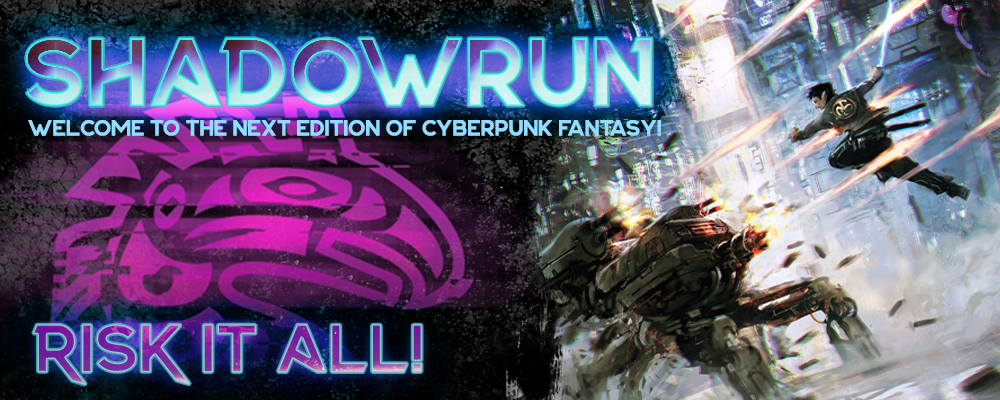 Lastly, my favorite tabletop RPG game of all time. (Image credit: The Topps Company, Inc.)
Lastly, my favorite tabletop RPG game of all time. (Image credit: The Topps Company, Inc.)
Finally, we have Shadowrun. This is, by far, my favorite RPG game if we account for the setting and mechanics. But, I left it for last because it’s not a game for everyone.
If you liked Cyberpunk, then you should try the Cyberpunk tabletop RPG. But, Shadowrun is the real beast if you want a full game. The game basically contains everything that could exist in the universe.
Let’s just talk about weapons, for instance. I had an elf sharpshooter with a huge sniper rifle. That rifle had a dozen attachments, and each one introduced a gameplay change. Plus, the rifle had a personality chip. Everything in this game has its own rules: magic, technomancy, guns, and melee combat.
While that’s amazing for someone like me, it can make the game too convoluted. Many friends have complained about it. Luckily, the franchise has been simplifying things since around the 4th edition. But, I’d still recommend building up to the over-complicated original rules.
Featured Image Credit: D&D Beyond.







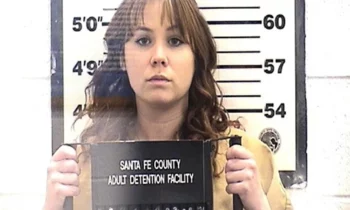
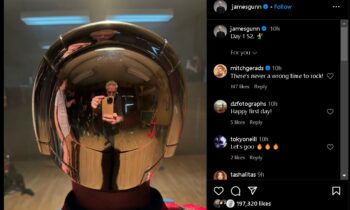
Leave a comment